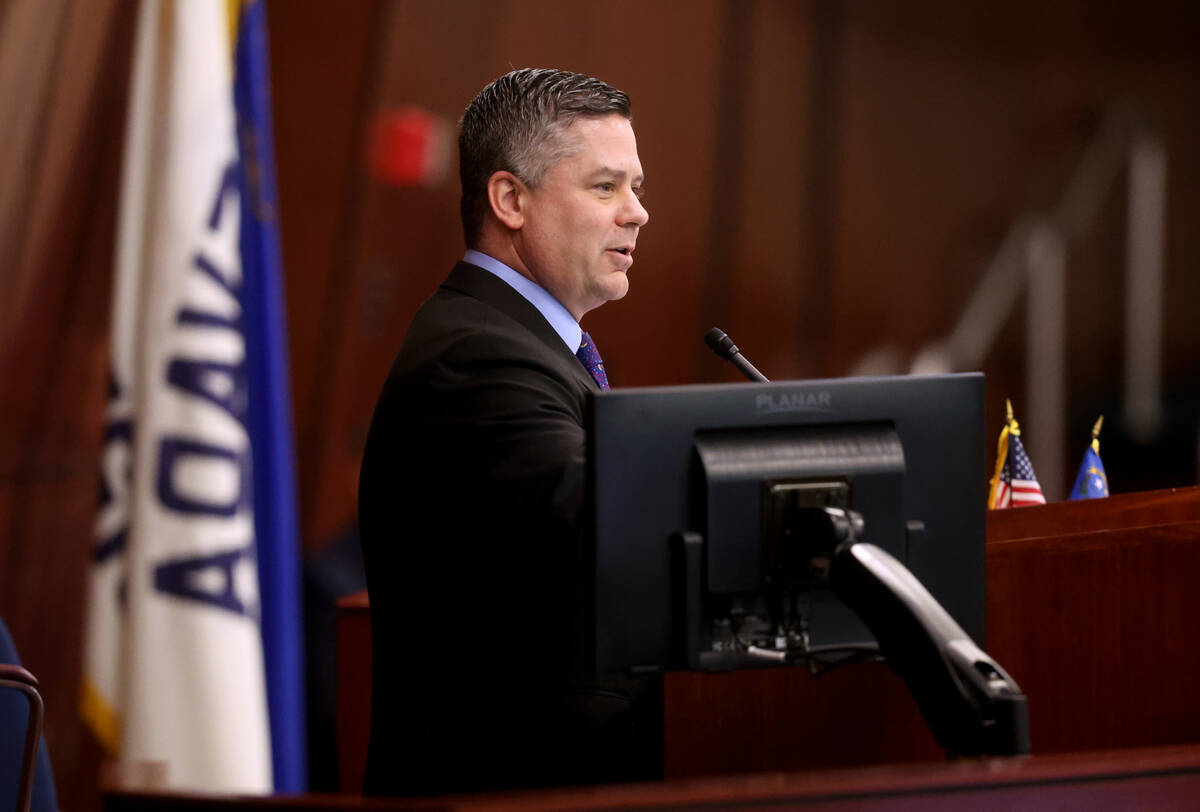Nevada bill would allow payments-only banks
CARSON CITY — A top Legislative Democrat proposes establishing a new type of bank in Nevada solely for processing payments to reduce small transaction fees that add up as money moves through financial systems.
Assembly Speaker Steve Yeager said legislation creating the charter and regulatory framework for payment banks could not only cut down costs for businesses and consumers but also be considered economic development by enticing financial institutions to set up shop in the state.
“This bill is really about positioning Nevada not just to participate in the future of finance, but to lead it,” Yeager, D-Las Vegas, said on Assembly Bill 500.
Payment banks would be prohibited from lending and engaging in related activity. Instead, they would act as a payment processor, reducing the number of financial institutions involved in moving money in transactions.
AB 500 proposes a 0.025 percent fee that payment banks would pay each time a transaction is processed. The fees would go to the state’s general fund.
State agencies estimate it would cost about $5.8 million in the upcoming 2025-2027 budget cycle to start up and about $5.3 million in future biennium budgets.
The Retail Association of Nevada is lobbying for the bill. Senior Vice President Bryan Wachter said the bill came from business owners who wanted to reduce the number of fees charged by financial middlemen, which ultimately cut into profits.
“This really came from our retailers having conversations on how we can get better banking services that are geared just for the retail merchants,” Wachter said in a Wednesday interview. “The payment processor, the money transmitter, the third-party bank that has to be involved — all of those companies stack on top of each other, and they’re each taking a little bit, which is how you add up to that (credit card transaction fee).”
State regulators would be responsible for overseeing the new banks. The Commissioner of Financial Institutions would be responsible for licensing, supervision, investigations, audits and other regulatory rules.
The bill does not require banks to be insured through the Federal Deposit Insurance Corporation, or FDIC. Alternatives allowed include private deposit insurance or no insurance, both with the approval of regulators. A lack of banking-related insurance would require the institution to provide a surety bond and get the approval of the commissioner and the state’s commissioner of insurance.
State agencies have taken mixed stances on the bill. The Secretary of State’s Office supported the bill, arguing it also could benefit from creating a payments bank solely for governmental entities because it processes so many transactions.
But the Nevada Financial Institutions Division opposed the bill, saying it was concerned the agency would not have the capacity to monitor the payments bank system and that the bill moved away from federal banking regulations.
“A payments bank handles not only the movement of money but also accepts deposits and requires a robust regulatory infrastructure that integrates human, technology and legal resources,” Commissioner Sandy O’Laughlin wrote in an opposition letter. “Without this, there is a genuine risk that regulatory gaps could be exploited.”
Banking groups also said they worried that the division — which is self-funded through fees from those banks — would have to use their fees to oversee payment banks. Amendments to the bill presented in a Tuesday hearing would separate the fees generated from traditional banks and payment banks.
The full Assembly is expected to vote on AB 500 this week. The Legislature adjourns on June 2.
Contact McKenna Ross at mross@reviewjournal.com. Follow @mckenna_ross_ on X.


















